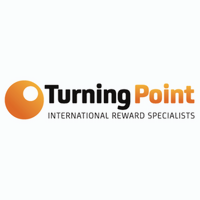Top tips on integrating career progression within reward strategies
An effective career progression strategy is intrinsically linked to an organisation's reward systems, structured career paths, and the support mechanisms it provides for employee development.
The importance of career development and rewards
A well-designed career path provides a clear roadmap for employees to advance within an organisation.
It should align with the reward structure so that each progression step is associated with specific rewards, reinforcing the employee's journey through tangible incentives.
Align reward with organisational culture and strategy
The first consideration is ensuring that the design and implementation of your reward strategy aligns with your organisational strategy and culture.
This enables reward to directly support your long-term business goals and ensures employee efforts are directed towards achieving these.
A strategic approach will help you recognise employees who are driving the success of your organisation, which in turn enhances engagement and retention.
Beyond pay and benefits (such as healthcare, benefit platforms, and annual leave), your reward strategy should also focus on:
- Learning and development opportunities
- Career growth and opportunities
- Succession planning
By incorporating these elements, you’re not only focusing on your employees' individual career aspirations and supporting them to thrive in your business but also driving your strategic goals forward.
If you’re unsure about how to integrate career progression into your reward strategy, our four simple steps can help.
Step 1: Understand what’s possible
Start by considering the structure of your organisation and what is achievable.
If you have a small, relatively flat structure, i.e. three layers, 20 members of staff and low turnover, it is less likely for employees to move through the ranks than in a much larger, hierarchical organisation.
It’s important that your strategy recognises what’s realistically achievable and can deliver it to your employees to ensure they stay motivated and engaged.
Step 2: Future proof
When designing your reward strategy, think long-term. Your strategy should not only meet the current needs of your organisation (such as addressing skills gaps) but should also anticipate future trends.
This will support you to create appropriate learning and development plans.
Consider employees' personal goals (within reason) and use this insight to create development plans that nurture internal talent.
This ensures that when career opportunities arise or turnover occurs, you have the right people in-house with the skills necessary to grow with the business.
Step 3: Communicate the plans to employees
The single most important step in any process involving anything reward related is employee engagement - communication and transparency are key.
When rolling out learning and development and career planning strategies, clearly explain what employees can expect and how it will benefit them.
As a first step, ensure your leadership and management teams understand the options available as this will enable them to discuss it with their teams and engage on a 1-2-1 level.
Clearly communicate the learning and development and career options to your employees too. This type of open communication fosters trust and ensures employees understand their value within the organisation.
Step 4: Review the success annually
Developing and building career progression and learning and development opportunities for your employees will take time and effort and should be a holistic process that doesn’t end with the rollout of the strategy.
Once you’ve communicated your strategy and have embedded it operationally, it’s important to assess its effectiveness regularly.
Engage with employees, actively seek feedback, and review and analyse uptake of your offer.
The working landscape is incredibly dynamic and always shifting; by regularly reviewing and assessing the effectiveness of your strategy, you can adjust as needed to remain competitive.
In summary
Learning and development, coupled with a clear career progression framework, are vital components of effective and motivational reward strategies.
They can help shape not only the core of your reward offer but enable you to support the retention and development of motivated, engaged and high performing individuals.
Additionally, they can significantly enhance your appeal to Gen Z talent.
By aligning reward with defined career paths and robust support mechanisms, you can drive growth and success - both for your employees and your organisation as a whole.
Supplied by REBA Associate Member, Turning Point
Our data and insight helps organisations build the best reward strategy for their business and people.








